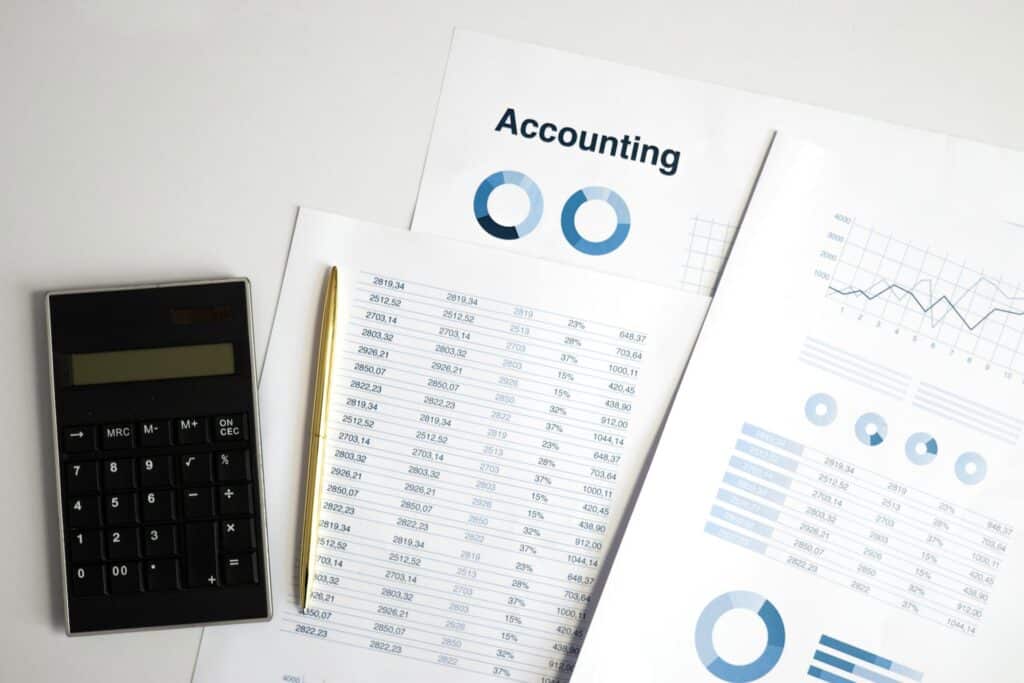Embarking on a journey through time, we trace the origins of accounting, a discipline that has weathered the centuries. From its humble beginnings in ancient civilizations to the refined double-entry bookkeeping of the Renaissance, accounting has mirrored the progression of human commerce.
Introduction to the transformative impact of technology on the accounting profession
Fast forward to the present, where the once manual and arduous record-keeping task has undergone a metamorphosis. Technology has woven itself into the fabric of accounting, profoundly altering the profession’s landscape and ushering in unprecedented efficiency.
Join me as we embark on an exploration of the intricate dance between technology and modern accounting. Our journey will unveil the profound changes technology has wrought upon the profession, from historical roots to the cutting-edge practices shaping today’s financial landscape.
Historical Context of Accounting Technology
Picture an era where meticulous accountants diligently etched transactions onto ledger books, the scratching of quills on parchment echoing through dimly lit rooms. While historic and foundational, the manual nature of this process was fraught with the potential for human error and time-consuming repetition.
Emergence of early accounting software

The advent of early accounting software was akin to the first rays of dawn breaking through the darkness. Computers, once colossal machines relegated to the realm of academia, began to find their place in the world of finance. The promise of increased accuracy and efficiency began to take root.
Fast forward to the era of spreadsheets and specialized accounting software. The once-static pages of ledgers became dynamic, with calculations and data manipulation performed at the click of a mouse. The evolution was not just technological but marked a seismic shift in how financial data was conceptualized and utilized.
Current Technological Trends in Accounting
Cloud Computing and its impact on data accessibility and collaboration
In the age of cloud computing, the once-bulky filing cabinets housing financial records have been replaced by virtual servers. Accessibility knows no bounds, empowering accountants to collaborate seamlessly, transcending geographical constraints.
Automation in accounting processes
Picture a world where the struggle of bookkeeping tasks is alleviated. Automated software meticulously categorizes transactions, freeing accountants to redirect their energy toward more nuanced aspects of financial management.
Real-time financial reporting has become the cornerstone of decision-making. No longer confined to static reports, accountants harness the power of automation for dynamic analyses that fuel strategic initiatives.
Artificial Intelligence (AI) and Machine Learning (ML) in Accounting
The Introduction of AI-powered predictive analytics has given accountants the gift of foresight. Once a static snapshot, historical data is now a dynamic canvas upon which future financial landscapes are painted.
AI and ML algorithms act as vigilant sentinels, scouring data for anomalies that might escape human notice. The result is enhanced fraud detection and a proactive approach to risk management.
So, if you require reliable accounting assistance, visit Sleek today for any online accounting services from the comfort of your home. Let them handle your accounting at a reasonable cost, and you can concentrate your time on growing your business.
Software Solutions in Modern Accounting

Overview of popular accounting software platforms
QuickBooks
QuickBooks, the stalwart of accounting software, is a testament to user-friendly design and comprehensive features. Its dominance is not just in the market but in the daily lives of countless businesses navigating financial complexities.
Xero
Xero, a cloud-based maverick, has democratized accounting for small businesses. Its agility and adaptability have transformed the financial landscape for entrepreneurs charting their course in the digital age.
Sage
With its diverse solutions, Sage has become the Swiss Army knife of accounting software. Its integration capabilities bridge gaps, providing a unified platform for businesses of all sizes.
Advantages of using accounting software
Time efficiency
The palpable relief of accountants navigating the swift currents of time efficiency is evident. Tasks that once consumed hours are now executed in mere minutes, affording professionals the luxury of time for strategic thinking.
Reduction of errors
Reducing errors isn’t just a numerical advantage; it’s a sigh of relief echoing through offices. Automation serves as a vigilant guardian against the insidious creep of human error, preserving the integrity of financial records.
Real-time data insights
Access to real-time data is not just a convenience but a superpower. Accountants with instantaneous insights navigate the financial landscape with clarity that was once the stuff of dreams.
Cybersecurity in Accounting

Growing importance of cybersecurity in the digital age
As financial data takes flight into the digital realm, the importance of cybersecurity has assumed colossal proportions. The once-insulated world of ledger books is now a battlefield where data integrity is paramount.
Risks associated with online financial data
The risks are not abstract; they are the spectres of unauthorized access and manipulation haunting the corridors of financial institutions. The consequences, from financial fraud to identity theft, cast long shadows over the digital landscape.
Measures to ensure data security and privacy in accounting processes
Encryption, secure access protocols, and the constant drumbeat of cybersecurity training constitute the shields wielded by accountants in the face of digital threats. It’s a relentless pursuit of safeguarding financial fortresses against unseen adversaries.
Challenges and Considerations
The resistance to change is not just a technological challenge; it’s a deeply human one. Overcoming the inertia of established practices requires technical finesse and a deft touch in navigating organizational culture.
Training and skill development for accounting professionals
The skills gap is not just a digital crevasse; it’s a call to action. Organizations investing in the ongoing development of their professionals are not just future-proofing; they are cultivating a workforce that thrives in the evolving landscape.
Balancing technology use with maintaining a human touch in client relationships
The human touch once thought to be at odds with technology, is now more crucial than ever. In the dance between automation and personal engagement, accountants find the delicate balance that nurtures trust and fosters lasting client relationships.
Future Outlook
Peering into the crystal ball, we anticipate technological advancements and a paradigm shift in how accounting unfolds. The future is not just a continuation; it’s an unwritten saga waiting to be penned by those who dare to dream.
Blockchain isn’t just a buzzword; it’s a seismic force poised to redefine transparency in financial transactions. The integration of machine learning isn’t just a possibility; it’s the next frontier in unravelling the complexities of financial analysis.
Conclusion
Our journey, from the annals of history to the bleeding edge of technology, has uncovered the multifaceted impact of innovation on the world of accounting.
Technology isn’t just a tool; it’s the brushstroke that paints the canvas of modern accounting. Its essential role is acknowledged and celebrated as the driving force behind efficiency and effectiveness.
This isn’t just a conclusion; it’s an invitation. This invites accountants to adapt and embrace the ongoing technological dance. The future isn’t just a destination; it’s a journey where those who ride the wave of technological advancements find continued success.



